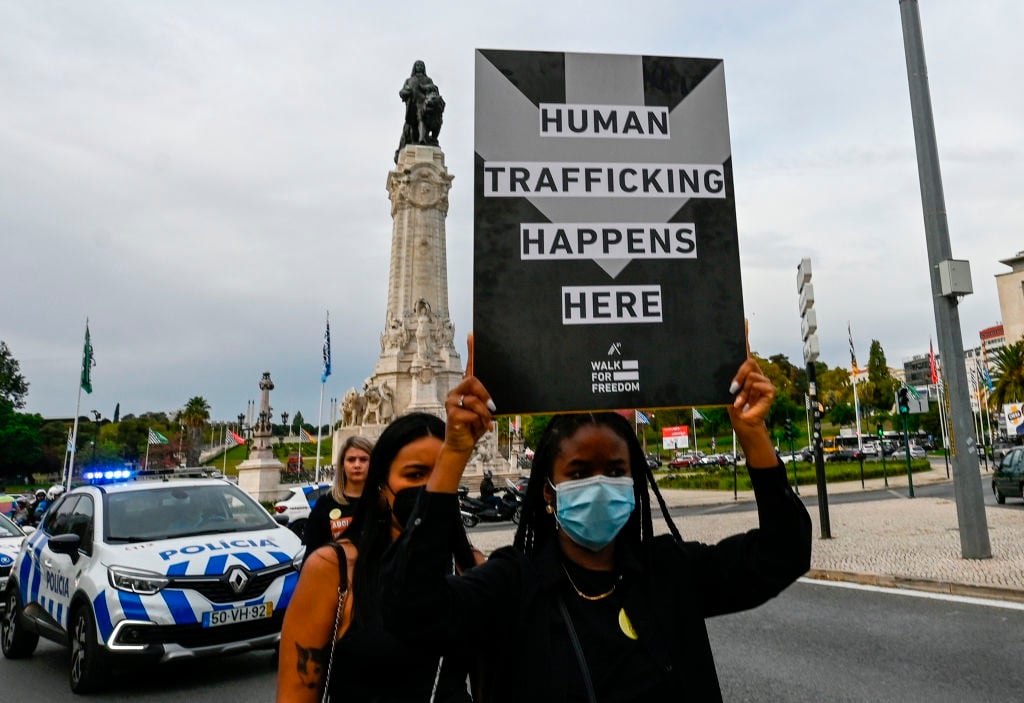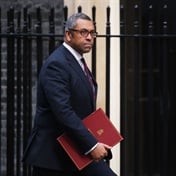
- For every 1 000 people in Africa, 29 are in some form of slavery.
- In Africa's conflict zones, there's an increase in the number of child soldiers and sex slaves.
- In the Sahel region, children are sent out as beggars by their religious teachers under the guise of spiritual guidance.
For every 1 000 people in Africa, 29 worked as forced labourers in 2021, and most of them were children and women.
This is according to a new report by United Nations (UN) bodies the International Labour Organisation (ILO) and the International Organisation for Migration (IOM) as well as the organisation Walk Free.
The report, titled "2021 Global Estimates of Modern Slavery: Forced Labour and Forced Marriage", covered all continents.
Africa had the lowest rate of slavery at 2.9% per 1 000 people. Arab states had a rate of 5.3% per 1 000 people, Europe and Central Asia 4.4%, and both the Americas, Asia and the Pacific had 3.5%.
But in terms of population distribution, the report stated that 3.8 million people in Africa were experiencing forced labour, which was 14% of the global share.
READ | Teen rescued from alleged sex trafficking by uncle posing as client, court hears
Globally, "the number in forced labour exploitation went up by 1.3 million and the number in forced commercial sexual exploitation rose by an even larger number – 1.5 million – over the 2016 to 2021 period," the report read.
The sharp increase was attributed to the Covid-19 pandemic and the economic shockwaves, job destruction, and rise in poverty accompanying it, leaving millions of workers worldwide in situations of heightened vulnerability.
The report noted that an ever-increasing number of children were experiencing forced commercial sexual exploitation in areas of conflict such as the Democratic Republic of the Congo (DRC), South Sudan, Sudan, Mali, and the Central African Republic.
The report stated:
In some parts of Africa, there are entrenched systems of domestic bondage involving children.
In Benin, there is "vidomegon", a system whereby poor families send children to live as servants with wealthier families.
Over the years, it has become a lucrative underground business, and children, aged three to 15, are sold as slaves.
In Togo, it's called "confiage".
Although there has been some lobbying to end child slavery in Mali and Mauritania, there is still a relatively high prevalence in some sectors of the traditional economy.
The report said:
In the Sahel region covering Burkina Faso, Cameroon, Chad, The Gambia, Guinea, Mauritania, Mali, Niger, Nigeria, and Senegal, child beggars are a prominent feature.
Child beggars were usually "required to beg by religious teachers with whom they are sent to live, ostensibly for spiritual guidance".
It is reported that 20 countries globally have a problem with child soldiers recruited in conflict zones.
In Africa, the hotspots are DRC, Mali, Nigeria, Somalia, South Sudan, and Sudan.
In these areas, besides direct participation in fighting at times, they were used as human shields, intelligence gatherers and bodyguards, as well as for landmine clearance.
In some parts of Africa, political and freedom of speech victims were jailed with hard labour.
The Committee of Experts on the Application of Conventions (CEACR) is an ILO branch that deals with lobbying governments to ratify international laws and treaties.
In Africa, it has engaged the governments of Burundi, Algeria, Benin, Tanzania and Zimbabwe to stop these practices on people detained for non-violent political offences.
The News24 Africa Desk is supported by the Hanns Seidel Foundation. The stories produced through the Africa Desk and the opinions and statements that may be contained herein do not reflect those of the Hanns Seidel Foundation.




 Publications
Publications
 Partners
Partners























